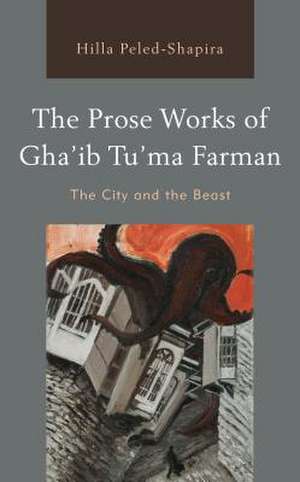Prose Works of Gha'ib Tu'ma Farman
Autor Hilla Peled-Shapiraen Limba Engleză Hardback – 14 sep 2018
Preț: 611.82 lei
Preț vechi: 794.58 lei
-23% Nou
Puncte Express: 918
Preț estimativ în valută:
117.07€ • 122.48$ • 97.25£
117.07€ • 122.48$ • 97.25£
Carte tipărită la comandă
Livrare economică 02-16 aprilie
Preluare comenzi: 021 569.72.76
Specificații
ISBN-13: 9781498504669
ISBN-10: 1498504663
Pagini: 172
Dimensiuni: 152 x 229 x 18 mm
Greutate: 0.52 kg
Editura: Rowman & Littlefield
ISBN-10: 1498504663
Pagini: 172
Dimensiuni: 152 x 229 x 18 mm
Greutate: 0.52 kg
Editura: Rowman & Littlefield
Notă biografică
By Hilla Peled-Shapira
Cuprins
Acknowledgements
Preface
Introduction
Chapter One: Ghäib Tüma Farman and His Generation¿an Introduction
Chapter Two: Opposition Intellectuals in Iraq through the Prism of Language and Style¿Farman
Chapter Three: Being an Opposition Intellectual in Iraq¿the Model of Circles of Criticism
Chapter Four: Memories of Baghdad
Conclusion
Bibliography
Descriere
This book reexamines the terms 'exile' and 'criticism' through language and metaphors in the writings of this Iraqi novelist, while shedding light on the tense relationship between Leftist intellectuals and the Iraqi regime in the mid-twentieth century.
